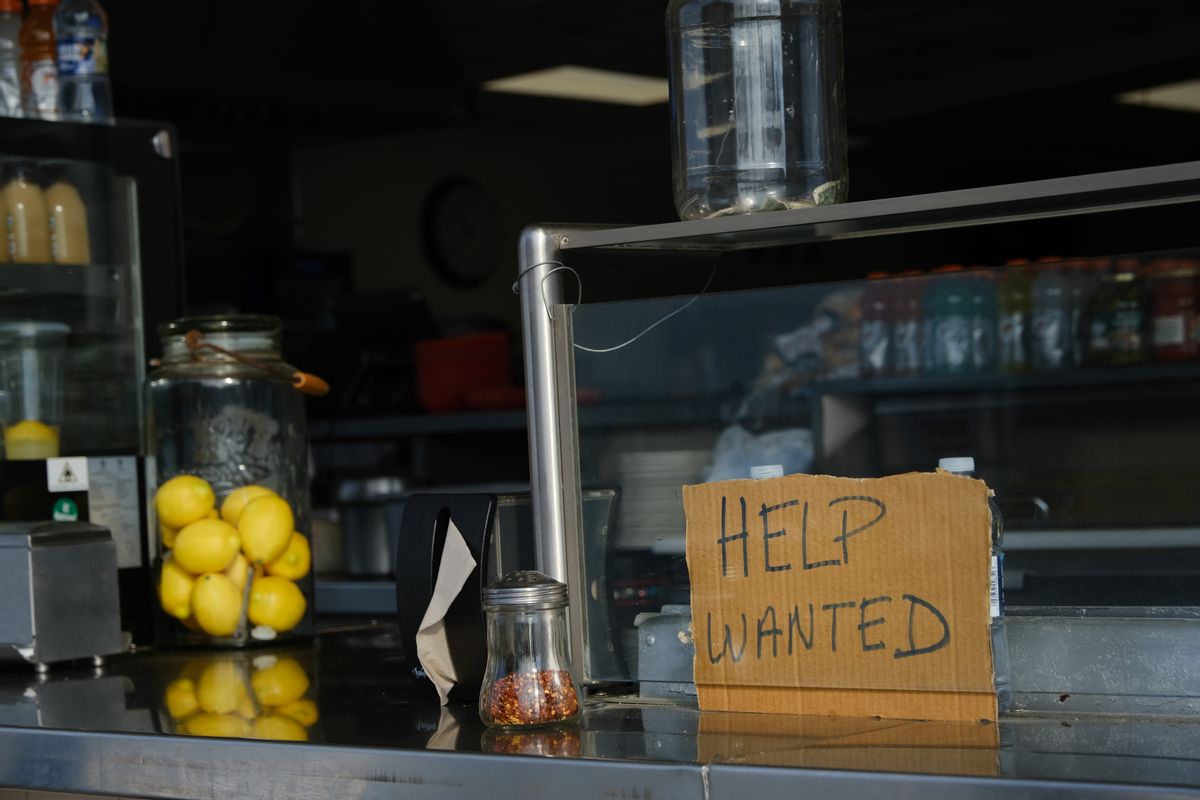Republican-controlled legislatures in several states have come up with a novel way to stem the effects of an ongoing labor shortage: loosen child labor laws governing the number of hours and times that teenagers are allowed to work.
It's not exactly a new strategy. Businesses hiring minimum-wage employees across the country have advertised their use of teenagers to plug the holes in their workforce for months, especially fast-food chains like Chipotle, Burger King and McDonalds, among others. Seasonal work in tourism-heavy industries like amusement parks have also doubled-down on the strategy.
But at least two states, Wisconsin and Ohio, are now pushing for new laws that would allow 14- and 15-year-olds to work longer hours — the most brazen attempts to expand American businesses' use of teenage labor in decades.
In Ohio, the Republican-controlled state legislature took up a measure last month to allow businesses to keep teenagers under the age of 16 at work until 9 p.m., with a parent's permission. Previously, they had only been allowed to work until 7 p.m. The bill was introduced by two Republicans and one Democrat.
Likewise, the Wisconsin Senate last month also passed a bill which would allow businesses to hire 14- and 15-year-olds to work from 6 a.m. to 9:30 p.m. on weeknights or 11 p.m. on weekends. The measure would only apply to businesses which run less than $500,000 in sales annually and aren't governed by a federal statute known as the Fair Labor Standards Act.
Want a daily wrap-up of all the news and commentary Salon has to offer? Subscribe to our morning newsletter, Crash Course.
If approved by the state Assembly, which appears likely, its fate will lie with Democratic Gov. Tony Evers. It remains unclear whether he will veto the measure or not.
It's just the latest attempt in a long line of Republican-led changes to the state's child labor code over the last decade, according to an analysis in The Guardian. In 2011, Wisconsin eliminated limits on the number of hours — and days — that minors aged 16-17 could work, and even replaced the phrase "child labor" in state law with "employment of minors" in 2017.
The most recent changes have attracted support from a number of powerful service-industry lobbies, such as the Wisconsin Restaurant Association, who say it will help to solve businesses' staffing issues and teach teenagers a healthy work ethic.
On the other side, the measure has attracted ire from the AFL-CIO and a number of the state's high-profile Democrats, who uniformly appear to oppose the bill.
"It's a nice workaround," state Sen. Chris Larson, D-Milwaukee, told WISN-TV last month. "I think in reality if those employers are looking for workers, what frankly the market should dictate is they should be raising wages, offering additional benefits."
A number of high-profile progressives have echoed those sentiments — with some even pushing back against the mainstream narrative that a widespread worker shortage exists in the first place. Rep. Alexandria Ocasio-Cortez, D-N.Y., said on her Instagram recently that what America is confronting isn't a labor shortage, but a "dignified job shortage."
Sylvia Allegretto, a labor economist and co-chair of the Center on Wage and Employment Dynamics, told Salon that the larger issue at play is why kids would have to work in the first place.
"A lot of families are in such dire economic conditions that they might agree to send their kids to work because of necessity." she said. "But that's the problem. If you get up and go to work every day, you shouldn't be living in poverty, you shouldn't be living in such dire situations."
The increasing reliance on American teenagers to work more hours is also leading to a number of negative outcomes for children who are forced into the labor market at younger ages — including increasing rates of substance abuse and high school dropouts, research shows.
In an op-ed for the Bucks County Courier Times, a local Pennsylvania newspaper, high school junior Darcy Leight wrote that she and her peers were experiencing burnout at much higher rates due to the increasing pressure to work longer hours in recent months.
"A job I intended to work strictly during the summer has somehow found its way into my fall schedule and has become almost equivalent to academics on my priority list. And I don't even know how it happened," she wrote. "The coupling of a job anywhere from five to 35 hours a week along with being a student is extremely stressful.
More like this:



Shares